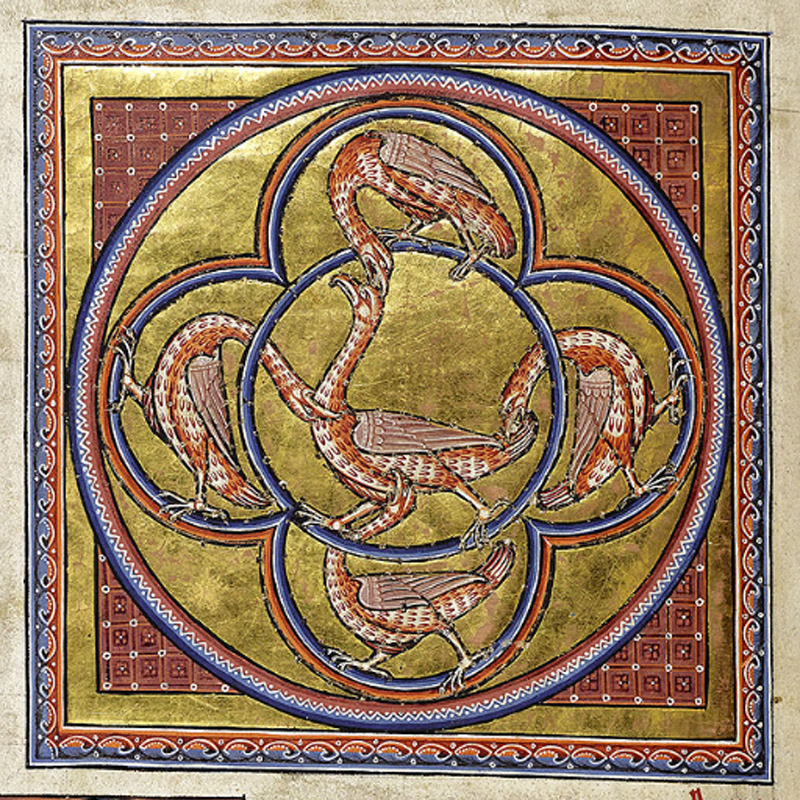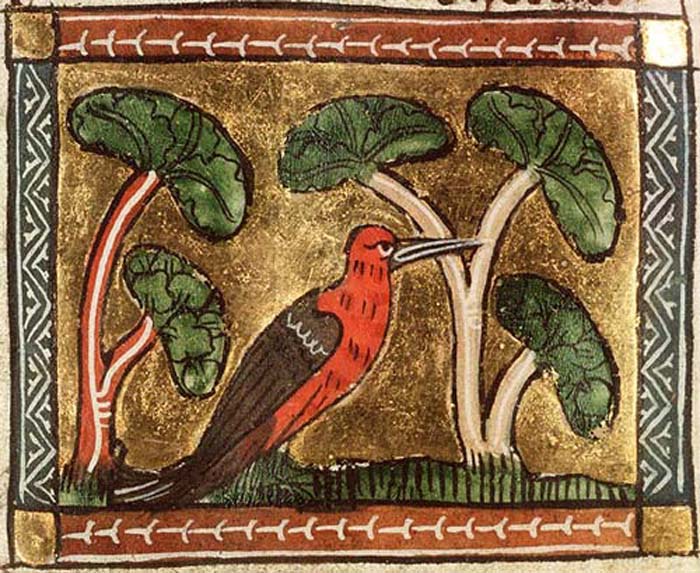
Four young hoopoe, rhythmically placed in a roundel, clean the eyes and pluck the feathers of their ageing parent.
Text Translation:
Of the hoopoe When the bird called the hoopoe sees that its parents have grown old and that their eyes are dim, it plucks out their old plumage and licks their eyes and keeps them warm, and its parents’ life is renewed. It as if the hoopoe said to them: ‘Just as you took pains in feeding me, I will do likewise for you.’ If birds, who lack reason, do as much for each other, how much more should men, who have the power of reason, support their parents in return; because the law says: ‘And he that curses his father, or his mother, shall surely be put to death’ (Exodus, 21:17); it is as if he were guilty of parricide or matricide. See how the hoopoes pluck their parents’ plumage and lick their eyes, in order that they should regain their former health.
Folio 36r – the night owl, continued. De epopo; the hoopoe.
Of the magpie Magpies are like poets, because they utter words, with a distinct sound, like men; hanging in the branches of trees, they chatter rudely, and even if they cannot get their tongues round words, they nevertheless imitate human speech. On this subject someone aptly said: ‘The chattering magpie, firm of voice, greets you as lord. If you do not see me, you will deny that I am a bird’ (Martial, Epigrams, 14: 76). The woodpecker, picus, gets its name from Picus son of Saturn, because he used it for taking auguries. For they say that this bird has something divine about it; the proof of this is, if a woodpecker nests in any tree, a nail or anything fixed in the trunk will not stay there for long, but will fall out as soon as the bird sits in its nest.





I’m beginning to get the impression that all these descriptions of wildlife and etymology are just an excuse to sneak in some biblical instruction.
Yep. You can’t talk about god’s critters without talking about god. God, god, god.